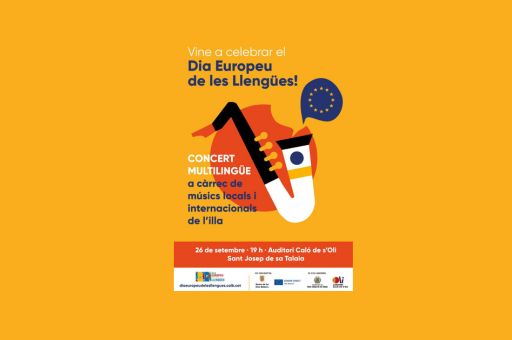The participating musicians will offer a repertoire in different languages and styles.
On the occasion of the European Day of Languages, today, 26th September, the Government of the Balearic Islands is organising a concert in Sant Josep de sa Talaia, in collaboration with the town council. The concert will take place in the Caló de S’Oli auditorium, on the outdoor stage, one of the most spectacular infrastructures in Ibiza dedicated to the arts.
The event will be attended by the regional secretary of Culture of the Government of the Balearic Islands, Pedro Vidal; the director general of Institutional Relations and Relations with Parliament, Francisca Ramis, and the mayor of San José de Sa Talaia, Vicent Roig.
To celebrate and promote linguistic diversity, the concert will feature several musicians and ensembles from the island of Ibiza, both local and international, who will perform a repertoire in different languages and musical styles.
TDB keeps you informed. Follow us on Facebook, Twitter and Instagram
The Government of the Balearic Islands is organising a concert to commemorate the European Day of Languages
The participating musicians include Montse Llaras and Miquel Prats from Bluesmafia and es Saligardos, who will perform in Catalan; Franco and Patrick from The French Connection, who will perform in French; Claudia Otelli from the group Swingin Tonics, with a repertoire in Italian; Momo Loudiyi and Fabrice Martínez, who will sing in Darija; Sean and Raul from Moonshine, with Gaelic lyrics; and Arthur Gecke and Victor Gresely, with a repertoire in German.
It should be noted that the regional secretary of Culture of the Govern, Pedro Vidal, who will be present at the different performances of today’s concert, points out that ‘this concert, which unites language and culture, is a good initiative to promote linguistic diversity in the different areas of daily life today’.
